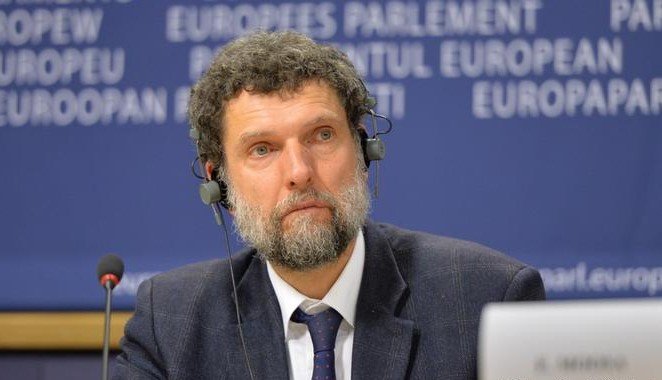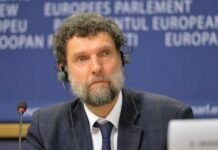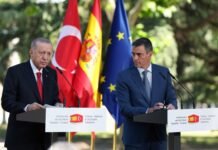Human rights organizations have called for the immediate release of prominent businessman and philanthropist Osman Kavala, who has been behind bars on a series of shifting charges since 2017, following a decision by the Council of Europe (CoE) Committee of Ministers to begin infringement proceedings against Turkey.
The Committee of Ministers, the executive organ of the CoE, on Tuesday decided to take action against Turkey for failing to release Kavala despite a European Court of Human Rights (ECtHR) ruling and ordered that the case be submitted to the ECtHR for review, officially beginning an infringement procedure against Turkey.
Responding to reports regarding the CoE’s decision, Amnesty International’s Europe Director Nils Muižnieks urged the Turkish government to release Kavala, saying, “After more than four years behind bars, we sincerely hope that the authorities will now do the right thing and free Osman Kavala.”
“The message from the Committee of Ministers today is clear: Turkey must release Osman Kavala and end his politically motivated persecution,” said Muižnieks.
In a statement, Human Rights Watch (HRW) said the decision was an important step to support human rights protection in Turkey and uphold the international human rights framework.
“Turkey knows that the European Court’s judgments are binding but has chosen to defy its obligations and the rule of law,” said Aisling Reidy, senior legal adviser at HRW. “Through the infringement proceedings and engagement from other countries, that needs to change, and Turkey should free Osman Kavala immediately and restore all of his rights.”
The CoE on December 3 ruled to notify Turkey of its intention to launch infringement proceedings against the country for refusing to free Kavala, triggering a procedure used only once before in the organization’s history.
However, a Turkish court on January 17 extended Kavala’s detention, ignoring a deadline from the CoE to release him.
The 64-year-old civil society leader and businessman, who has been kept in jail without conviction of any crime for more than four years, is accused of financing 2013 anti-government protests and playing a role in a 2016 coup attempt. If convicted, he could be jailed for life without the possibility of parole.
Turkey refuses to release Kavala despite a binding judgment of the ECtHR in December 2019 finding that his detention for allegedly directing and financing the Gezi Park protests of 2013 and for alleged involvement in the failed coup of July 2016 was in pursuance of an “ulterior motive,” that of silencing him as a human rights defender.
The philanthropist has become a symbol to his supporters of the sweeping crackdown President Recep Tayyip Erdoğan unleashed after the failed coup.
In October 2021 the ambassadors of 10 countries, including the US, Germany and France, demanded Kavala’s immediate release in line with the 2019 ECtHR ruling. President Erdoğan threatened to expel the envoys before backing down.













